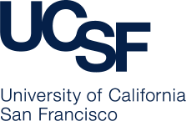As the holiday season approaches and the weather grows chillier, we’d like to share some exciting new changes to the Brain Health Registry.
First of all, our website has a brand-new appearance! If you haven’t seen it yet, you can click here to take a look.
Changes to BHR Study Tasks
In recent weeks, the Brain Health Registry team has altered some study tasks and questionnaires. We have shortened the initial questionnaire that participants complete when enrolling in our study and at the beginning of follow-up visits. We have also cut down the overall number of tasks that we ask participants to complete at each visit.
We’ve made these changes in an effort to reduce the overall time commitment for our study without altering its scientific goals or compromising the integrity of our data. Moving forward, we hope that your follow-up visits will be easier and more efficient!

Introducing CAL-BHR
We would also like to introduce the California Latino Brain Health Registry (or CAL-BHR). Funded by the California Department of Public Health, this initiative aims to improve methods for recruiting and engaging older Latinos in research on Alzheimer’s disease and related dementias. This will help researchers improve how clinical research, including Alzheimer’s prevention trials, is designed and executed.
As stated in the 2020 Alzheimer’s Association Facts and Figures Report, Latino individuals are 1.5 times more likely to develop Alzheimer’s disease than non-Latino white individuals. And, although Latinos are the largest ethnic group in California, this group makes up only a small portion of participants in research studies.

A major goal of CAL-BHR is to enroll about 5,000 Latino individuals in the Brain Health Registry over the next two years. As part of this project, the Brain Health Registry team is working to have Spanish language versions of all of our questionnaires and study tasks available on our website.
We are excited for the opportunity to make the Brain Health Registry and other Alzheimer’s research more inclusive and representative of our diverse country. This will help to accelerate the search for treatments for brain diseases that can benefit all communities.
This Thanksgiving, we want to appreciate your continued support and dedication to our study. From the entire Brain Health Registry team, thank you!




